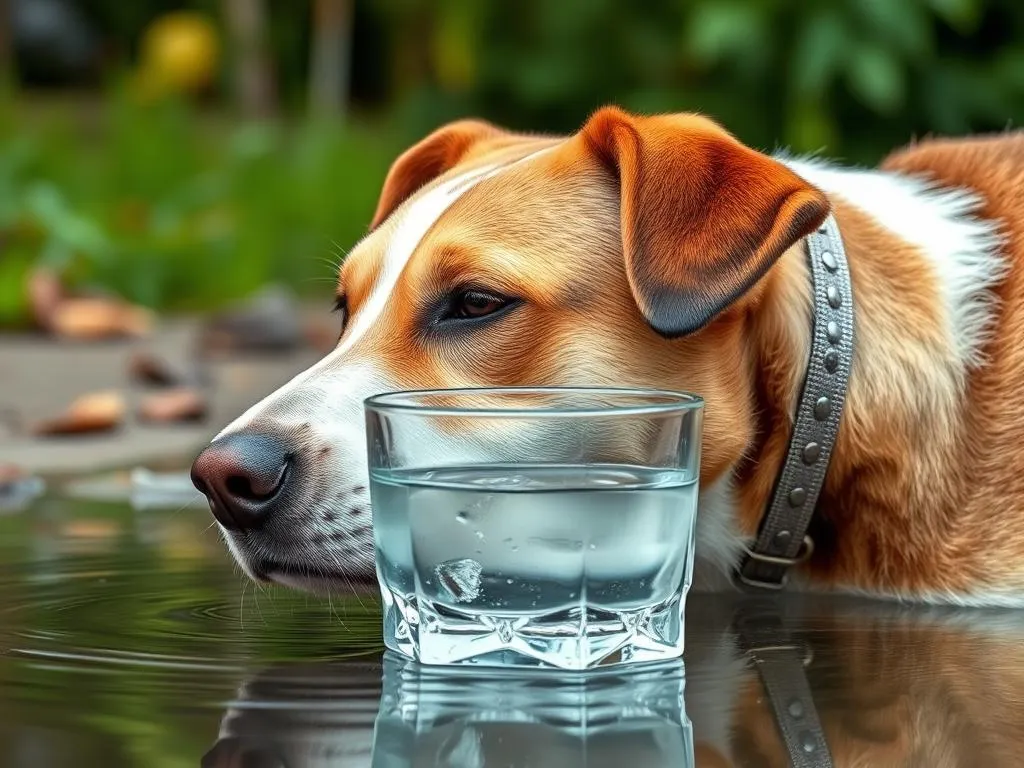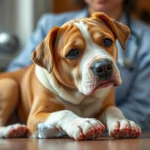
Introduction
Dog health care is a critical aspect of responsible pet ownership, ensuring that our furry companions lead happy and healthy lives. One common concern that many dog owners encounter is the phenomenon of coughing, particularly when it occurs after their dogs drink water. Why do dogs cough after drinking water? Understanding this issue is essential for dog owners, as it can indicate underlying health problems or simply be a normal behavior. In this article, we will explore the reasons behind coughing in dogs, especially after they drink water, and discuss when it may be a cause for concern. We’ll also provide preventive measures and best practices to maintain your dog’s health and well-being.
Understanding Coughing in Dogs
What is Coughing?
Coughing in dogs is defined as a sudden, forceful expulsion of air from the lungs. It can serve various purposes, such as clearing irritants from the throat or airway. There are two main types of coughing in dogs: normal and abnormal. Normal coughing may occur occasionally and is often not a cause for concern, while abnormal coughing can be persistent, frequent, or associated with other worrying symptoms.
Causes of Coughing in Dogs
Coughing can arise from several factors, which can be grouped into acute and chronic causes. Acute coughing is typically a sudden onset and can be caused by things like allergies, infections, or irritants. Chronic coughing, on the other hand, lasts for an extended period and may indicate more serious health issues, such as heart disease or lung problems.
When Dogs Cough After Drinking Water
Common Reasons for Coughing After Drinking
When dogs cough after drinking water, it can be perplexing for their owners. Here are some potential causes specific to this occurrence:
-
Inhalation of Water: Dogs may accidentally inhale water, especially if they drink quickly or are overly excited. This can lead to coughing as the body tries to clear the irritant from the airway.
-
Irritation of the Throat: Drinking cold or very cold water can irritate a dog’s throat, prompting a coughing response. Similarly, if the water is too hot, it can cause discomfort and lead to coughing.
-
Underlying Health Conditions: Conditions such as kennel cough, allergies, or asthma can exacerbate coughing after drinking. If a dog has a pre-existing respiratory issue, the act of drinking may trigger a coughing fit.
Differentiating Between Normal and Concerning Coughing
Not all coughing after drinking water is alarming. Many dogs might occasionally cough without any serious implications. However, there are signs that may indicate when coughing is normal versus when it requires veterinary attention:
-
Normal Coughing: If your dog coughs once or twice after drinking and resumes normal behavior, it’s likely not a concern.
-
Concerning Coughing: Signs that warrant a visit to the veterinarian include persistent coughing, coughing accompanied by other symptoms (like lethargy, loss of appetite, or difficulty breathing), or any change in the sound or frequency of the cough.
Potential Health Issues Associated with Coughing
Respiratory Infections
Coughing can often be a symptom of respiratory infections, which are relatively common in dogs. Conditions such as kennel cough, canine influenza, or pneumonia can all cause coughing. Symptoms typically include:
- Persistent cough
- Nasal discharge
- Fever
- Lethargy
Treatment options may vary depending on the severity of the infection and could include antibiotics, cough suppressants, or supportive care.
Allergies
Allergies may also be a significant contributor to coughing in dogs. Dogs can be allergic to various environmental factors, such as pollen, dust mites, or certain foods. Identifying allergens can help manage symptoms effectively. Signs of allergies may include:
- Sneezing
- Itchy skin
- Watery eyes
- Coughing
Managing allergies may require a combination of avoiding allergens, medication, and sometimes dietary changes.
Other Underlying Conditions
Several other underlying health issues can cause coughing in dogs:
-
Heart Disease: Conditions like congestive heart failure can lead to coughing, especially after drinking. This occurs due to fluid buildup in the lungs.
-
Tracheal Collapse: This is a condition where the trachea becomes weakened and can collapse, leading to coughing, particularly in small breed dogs.
If you notice any persistent cough alongside these conditions, it’s essential to consult your veterinarian for further evaluation and treatment options.
Preventive Measures and Best Practices
Proper Drinking Habits
Encouraging proper drinking habits can help reduce the likelihood of coughing after drinking water. Here are some tips for dog owners:
-
Slow Down Water Consumption: Consider using a slow feeder or a water bowl designed to prevent gulping. This can help minimize the risk of inhaling water.
-
Monitor Water Intake: Keep an eye on how much water your dog is consuming, as excessive thirst can sometimes indicate underlying health issues.
Regular Vet Check-ups
Routine veterinary visits play a crucial role in maintaining your dog’s health. Regular check-ups can help catch potential problems early. Typically, dogs should see the vet at least once a year, but older dogs or those with pre-existing conditions may require more frequent visits.
Home Care Tips
Creating a healthy environment at home can also contribute to your dog’s overall well-being.
-
Nutrition: Ensure your dog is on a balanced diet appropriate for their age, size, and health status.
-
Hydration: Always provide fresh, clean water for your dog to drink. This can help prevent throat irritation from stale or contaminated water.
-
Reduce Irritants: Minimize exposure to smoke, strong odors, and pollutants in your home, as these can irritate your dog’s respiratory system.
When to Seek Veterinary Help
Recognizing Emergency Signs
Certain symptoms indicate that your dog may need immediate veterinary assistance. Here is a list of concerning signs:
- Persistent or severe coughing
- Difficulty breathing or wheezing
- Coughing up blood or mucus
- Lethargy or weakness
- Loss of appetite or drastic weight loss
- Blue-tinged gums
If your dog exhibits any of these symptoms, it’s essential to seek veterinary help promptly.
Preparing for the Vet Visit
When visiting the vet, being prepared can make the process smoother. Here are some tips:
-
Document Coughing Incidents: Keep a record of your dog’s coughing, including when it occurs, how often, and any associated behaviors.
-
List Questions: Prepare a list of questions for your veterinarian regarding your dog’s health, coughing, and any other concerns you may have.
Conclusion
In conclusion, understanding why dogs cough after drinking water is important for all dog owners. While coughing can be a normal response, it can also indicate underlying health issues that require attention. By monitoring your dog’s health, encouraging proper drinking habits, and maintaining regular veterinary check-ups, you can help ensure your dog remains healthy and happy. Staying informed and proactive about your dog’s health is vital for their well-being.
FAQs
Common Questions about Dog Coughing
What should I do if my dog coughs after drinking water?
If it happens occasionally and your dog seems otherwise healthy, it’s likely not a cause for concern. However, if the coughing is persistent or accompanied by other symptoms, consult your veterinarian.
Can allergies cause coughing in dogs?
Yes, allergies can lead to coughing, especially if they irritate the respiratory system.
Questions Related to Dog Health Care
How often should I take my dog to the vet?
Generally, dogs should have a check-up at least once a year, but older dogs or those with health issues may need more frequent visits.
What can I do to improve my dog’s respiratory health?
Ensure your dog has a balanced diet, regular exercise, a smoke-free environment, and routine veterinary care to help maintain their respiratory health.









